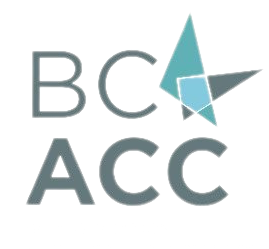Stress
Anxiety

Stress and anxiety are two related but distinct experiences. Stress is a physiological response to a perceived threat or challenge, whether real or imagined. It can be caused by various factors such as work, relationships, financial problems, or even positive life changes like a new job or moving to a new city. In other words, stress is a response to a specific situation or event.
While stress is usually temporary and often related to a specific situation or event, anxiety can persist even when the stressor is removed. Additionally, anxiety is often more pervasive and may impact multiple areas of a person’s life, whereas stress tends to be more limited to the specific stressor. Anxiety is a feeling of unease, apprehension, or worry about something that might happen in the future. It is often characterized by excessive and persistent worry or fear, which can be challenging to control. Anxiety can be triggered by various factors, such as health concerns, social situations, financial worries, or past traumatic experiences.
It’s also worth noting that while some level of stress can be motivating, excessive anxiety can be detrimental to a person’s overall well-being. In summary, stress and anxiety share some similarities in terms of physiological responses, but they have different causes, durations, and impacts on a person’s life.
Anxiety disorders
according to the Diagnostic and Statistical Manual of Mental Disorders (DSM) which is like a bible for clinicians in psychology, psychotherapy and counselling fields, there are different types of anxiety including anxiety disorders:
- Separation anxiety disorder
- Selective Mutism
- Specific Phobia
- Social Anxiety Disorder
- Panic Disorder
- Panic Attack Specifier
- Agoraphobia
- Generalized Anxiety Disorder
- Substance/Medication-Induced Anxiety Disorder
- Anxiety Disorder Due to Another Medical Condition
- Other Specified and Unspecified Anxiety Disorder
So, there are several types of anxiety disorders, and they are often characterized by excessive and persistent fear, anxiety, or avoidance behaviors related to specific objects or situations. Individuals with anxiety disorders often experience a range of physiological and emotional symptoms, including muscle tension, heart palpitations, sweating, dizziness, restlessness, and a sense of impending doom. It’s important to seek professional help if you are experiencing persistent anxiety symptoms that are interfering with your daily life.
How can stress and anxiety impact us?
Stress and anxiety can have serious consequences on our mental and physical health. Here are some of the ways stress and anxiety can impact us:
• Feeling out of control
• Engaging in self-harm or suicidal thoughts and ideations
• Experiencing a prolonged low mood
• Difficulty with concentration and decision-making
• Experiencing a change in hygiene habits
• Experiencing appetite disturbance or changes in weight
• Experiencing sleep problems, such as difficulty falling or staying asleep, or nightmares
• Misusing drugs or alcohol to cope with stress and anxiety
• Experiencing irrational fears and phobias
• Experiencing anger and irritability
• Feeling unmotivated and lacking in energy
• Lacking in self-efficacy and confidence
It’s important to seek help if you are experiencing any of these symptoms. Stress and anxiety can be effectively managed with the right treatment, such as therapy, medication, or lifestyle changes.
How can I help my clients with stress and anxiety?
Helping a client with stress or anxiety depends on many factors. While some clients may benefit from learning coping tools, others may require a more professional and evidence-based approach. For severe anxiety, it’s important to utilize evidence-based treatments that are specific to the type of anxiety disorder the client is experiencing. An integrated approach that includes Cognitive Behaviour Therapy, Dialectic Behavior Therapy, Gestalt Therapy, and an Existential lens has proven to be effective for clients who suffer from anxiety.
In my professional clinical counselling sessions, whether in person in Vancouver or through qualified online counselling, I utilize the integrated therapy approach. Having access to online counselling services allows you to consider, “ there are counselling sessions near me ” This undoubtedly reflects the dedication of our qualified clinical counselling services in supporting your mental health.
Some instances of help and support for clients with stress and anxiety include, but are not limited to:
- Validating feelings and emotions.
- Utilizing therapeutic questions to increase self-awareness.
- Understanding and detecting relevant triggers.
- Teaching clients how to cope with or eliminate triggers.
- Encouraging the use of techniques related to sleep hygiene.
- Assessing the client’s strengths and limitations.
- Teaching emotion regulation techniques.
- Teaching anger management techniques.
- Encouraging the use of useful therapeutic exercises if necessary.
It’s important to individualize treatment for each client, considering their unique situation and needs. By doing so, we can collaborate, whether in person at my Vancouver office or through online virtual sessions, to develop a tailored treatment plan that brings about positive and enduring results for you.









